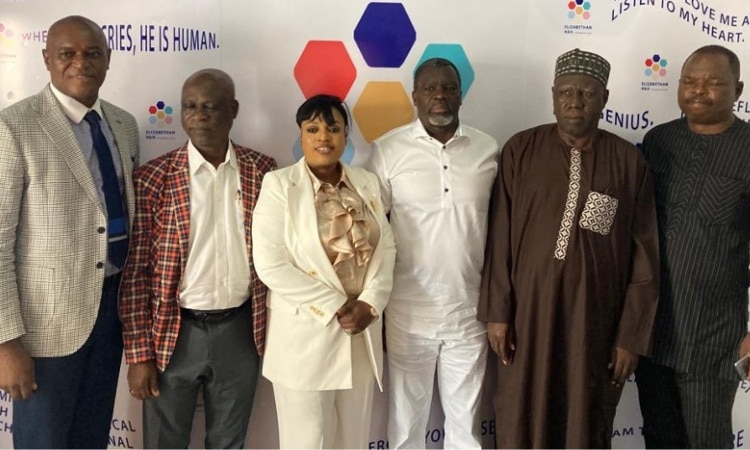Gist
International Men’s Day: Men Account For 80 Percent Of Suicide In Nigeria – Elizabethan Foundation

The Elizabethan Humanitarian Life Foundation has proposed the creation of a Men’s Affairs Ministry to address men-related issues, focusing on addressing the alarming concern of suicide among males.
During her address marking the 2023 International Men’s Day in Nigeria, Oyinade Samuel-Eluwole, the founder/CEO of the Elizabethan Humanitarian Life Foundation, emphasised that the establishment of a Men’s Affairs Ministry by the federal government is long overdue to provide support and assistance to men.
Samuel-Oyewole expressed deep concern over the global issue of suicide, noting that it is particularly alarming to have Nigeria as a significant centre of suicides, with the majority of reported cases involving males.
Highlighting the distressing suicide statistics in Nigeria, the foundation revealed that 80.6% of reported suicide incidents are males, of which 51.8% are married individuals and 33.6% are students.
Despite the challenges in obtaining accurate data in Nigeria, Samuel-Oyewole stressed the need for collective action to address this critical issue and prevent the loss of lives to suicide.
Identifying key causes such as financial difficulties, societal expectations, and marital conflicts, she emphasised the importance of providing a platform for males to express themselves. The Elizabethan Humanitarian Foundation, she noted, is committed to intervening and providing a medium for such expression.
She outlined comprehensive strategies aimed at addressing the menace, starting from grassroots initiatives to broader societal and global efforts.
She said, “The grassroots model, the foundation intends to talk and listen to their hearts, encourage them, and give them hope. Be a bridge between them and individuals, organisations, and governmental agencies.”
“We intend to work with the Ministry of Education, Information and Strategy, Health, Interior, Youth and Sports, Justice, and Humanitarian Affairs.
“Our second strategy is to catch them young. We have written to the Ministry of Education in Lagos State, and we tend to have a round-table discussion with them, so together we can start an enlightenment campaign by talking about their challenges, be it the psychological or emotional part of a curriculum, the right to express themselves without fear or misconception.
“We have also written to the Ministry of Justice; this will help us discuss the running of a campaign to enlighten the public on government perspectives on offences relating to suicide.
“Part of the experiences we gained at the outreach is the data we generated from our survey of the differentials between the male gender and female gender in terms of the level of social needs of the male gender compared to the female gender. We also underscore the fundamental challenges the males face from the point of grassroots knowledge beyond some esoteric assertions of the issues that are not based on facts.
“We are still collating the figures, and as soon as we finish with the data collation and analysis, we will share them with the public. But, in the interim, we are aware, based on our on-the-ground assessment, that we are losing lots of our youths, especially the males, to drugs.
“We also noticed that parents’ lack of financial capabilities has made them let go of their children to the streets. By our estimation, based on our interaction with the youths on the streets we visited, eight out of ten youths are willing to leave the streets, go back to school, and be ready to learn trades, handwork, or technical jobs.
“Many of them told us they were ready to move out of the streets if the opportunity came. Many of them clamour for free education because many are out of school, mostly because of school fees – even as low as five thousand naira.”
Sharing her experience on the level of acceptance from the society on the rescue mission, Samuel-Oluwole said, “The acceptance has been very encouraging from all quarters. It is a known fact that the male gender needs help, and they are prepared to talk about it at this rate.
“The acceptance level is expected because parents are losing their children not only to the streets but also to a lot who are still with their parents but are already disconnected. At the same time, wives are losing their homes. The overall picture is that, at last, help has come. People move so fast to ask questions about what to expect and are ready to express themselves.
“Like every other venture, you don’t expect a new initiative to flow or flourish without initial teething problems and challenges. But, despite all these, we are still trudging on. We embarked on a self-sponsored opinion survey of males in our society and came to the understanding of what the male gender in our society goes through – from cradle to adulthood. We realised that the challenges are enormous.
“We also realised that to accomplish our goal, we will need to partner and collaborate with other bodies and organisations in similar advocacy terrain as we do. They may not necessarily focus on the male gender as we do, but they are obviously fighting for the well-being of people in our society.
“Following this, we have joined the Nigerian Network of NGOs, NNNGO, to enable us to enjoy the synergy that comes with a network of advocates for a better society.
“We have visited some strategic locations to identify causes of frustrations in males, and we were able to have an idea of the number of males on the streets compared to females.
“The experience gained from our visit is invaluable. It gave a pointer to different causes of male frustration and why we have lots of males on the streets.
“The acceptance has been very encouraging from all quarters. It is a known fact that the male gender needs help, and they are prepared to talk about it at this rate.
“The acceptance level is expected because parents are losing their children not only to the streets but a lot that are still with their parents but are already disconnected, while wives are losing their homes.
“So, the overall picture is like, at last, help has come. People move so fast to ask questions about what to expect and are ready to express themselves.”


